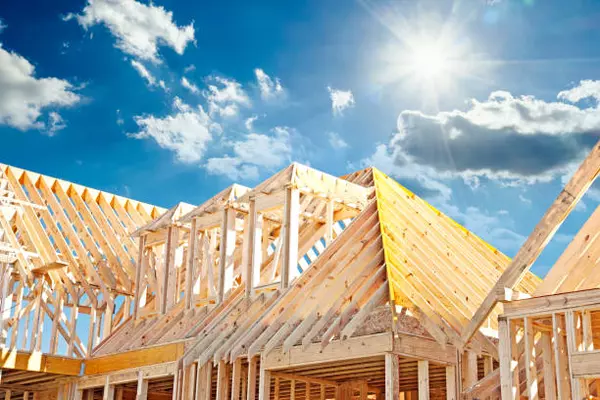10 Essential Tips Every First-Time Homebuyer Should Know

Buying your first home is an exciting milestone, but it can also be a bit overwhelming. From navigating the mortgage process to finding the right home, there’s a lot to consider. But don’t worry! With the right knowledge and preparation, you can make your first home-buying experience smooth and successful. Here are 10 essential tips every first-time homebuyer should know to help you on your journey to homeownership.
1. Know Your Budget
Before you start looking at homes, it’s important to know how much you can afford. Take a close look at your income, savings, and current expenses to figure out what fits your financial situation. Don’t forget to factor in additional costs like property taxes, insurance, and maintenance.
- Evaluate your income and current expenses.
- Factor in extra costs like taxes, insurance, and maintenance.
- Set a clear budget to avoid overspending.
2. Get Pre-Approved for a Mortgage
Getting pre-approved for a mortgage gives you a clear understanding of how much a lender is willing to offer you, based on your credit score and financial profile. A pre-approval not only gives you a budget but also makes you a more attractive buyer to sellers, as they know you're financially ready to make a serious offer.
- Get pre-approved to know your borrowing limit.
- Pre-approval strengthens your offer and shows sellers you’re serious.
- Shop around for mortgage rates to find the best deal.
3. Work with a Real Estate Agent
A professional real estate agent is a valuable asset in your home-buying journey. They’ll guide you through the process, help you find homes that meet your criteria, and negotiate on your behalf. Their expertise can save you time, money, and stress.
- Work with a real estate agent to navigate the buying process.
- A good agent helps with negotiations and finding homes that fit your needs.
- Leverage their expertise to make informed decisions.
4. Focus on Location
While it’s tempting to focus on the features of the house, remember that location is just as important. Think about proximity to work, schools, shopping, and other amenities. The right neighborhood can improve your quality of life and positively impact your home’s future resale value.
- Consider the location's proximity to work, schools, and amenities.
- A good location enhances lifestyle and home resale value.
- Research neighborhood safety, schools, and community features.
5. Consider Long-Term Needs
When buying your first home, think about your long-term plans. Are you planning to start a family or work from home? Make sure the home you choose can grow with you and accommodate future needs, so you won’t outgrow it too quickly.
- Choose a home that fits your current and future needs.
- Consider whether the home will suit your lifestyle long-term.
- Think about features that will support your future plans, such as extra space.
6. Don’t Skip the Home Inspection
A home inspection is an essential part of the buying process. Even if the home looks perfect on the surface, an inspection can reveal hidden issues like structural damage, faulty wiring, or plumbing problems. It’s better to know these things before finalizing the sale.
- Always get a home inspection to uncover potential issues.
- Inspections reveal hidden problems that could save you money.
- Use inspection results to negotiate repairs or price reductions.
7. Understand Your Mortgage Options
There are many different types of mortgages, including fixed-rate, adjustable-rate, FHA loans, and VA loans. Take the time to learn about your options and choose the mortgage that best fits your financial situation and home-buying goals.
- Research different types of mortgages: fixed-rate, adjustable, FHA, and VA.
- Choose a mortgage that aligns with your financial goals.
- Understanding your options helps you make a smarter financial decision.
8. Be Ready for Closing Costs
Many first-time buyers are surprised by closing costs, which can include appraisal fees, title insurance, and attorney fees. These typically range from 2% to 5% of the home’s purchase price. Be prepared for these expenses and factor them into your budget.
- Closing costs typically range from 2% to 5% of the home price.
- Prepare for additional fees like appraisals, title insurance, and attorney costs.
- Factor closing costs into your overall budget to avoid surprises.
9. Don’t Rush the Process
It’s easy to get caught up in the excitement of buying a home, but it’s important to take your time. Don’t rush into making a decision. Give yourself time to compare options, conduct research, and ensure that you’re making a sound investment.
- Take your time when making a decision.
- Compare multiple homes before choosing the right one.
- Rushing can lead to costly mistakes—patience pays off.
10. Stay Within Your Budget
Finally, don’t let emotions cause you to go over your budget. While it’s tempting to stretch a little for that “dream” home, it’s crucial to stick to what you can afford. Overspending can lead to financial strain in the long run, so stay disciplined.
- Stick to your budget and avoid overspending.
- Don’t stretch your finances for a “dream” home—be realistic.
- Staying within your budget ensures financial stability after the purchase.
In Summary
Buying your first home is a huge step, but with these 10 essential tips, you’ll be well-prepared to navigate the process with confidence. By understanding your finances, working with professionals, and taking your time, you can find a home that fits your needs and budget. Remember, this is the start of an exciting new chapter, so enjoy the journey!
Ready to Buy Your First Home? Let’s Get Started!
If you’re a first-time homebuyer and need guidance, I’m here to help! Contact me today to get expert advice and start your journey toward homeownership.
Categories
Recent Posts











